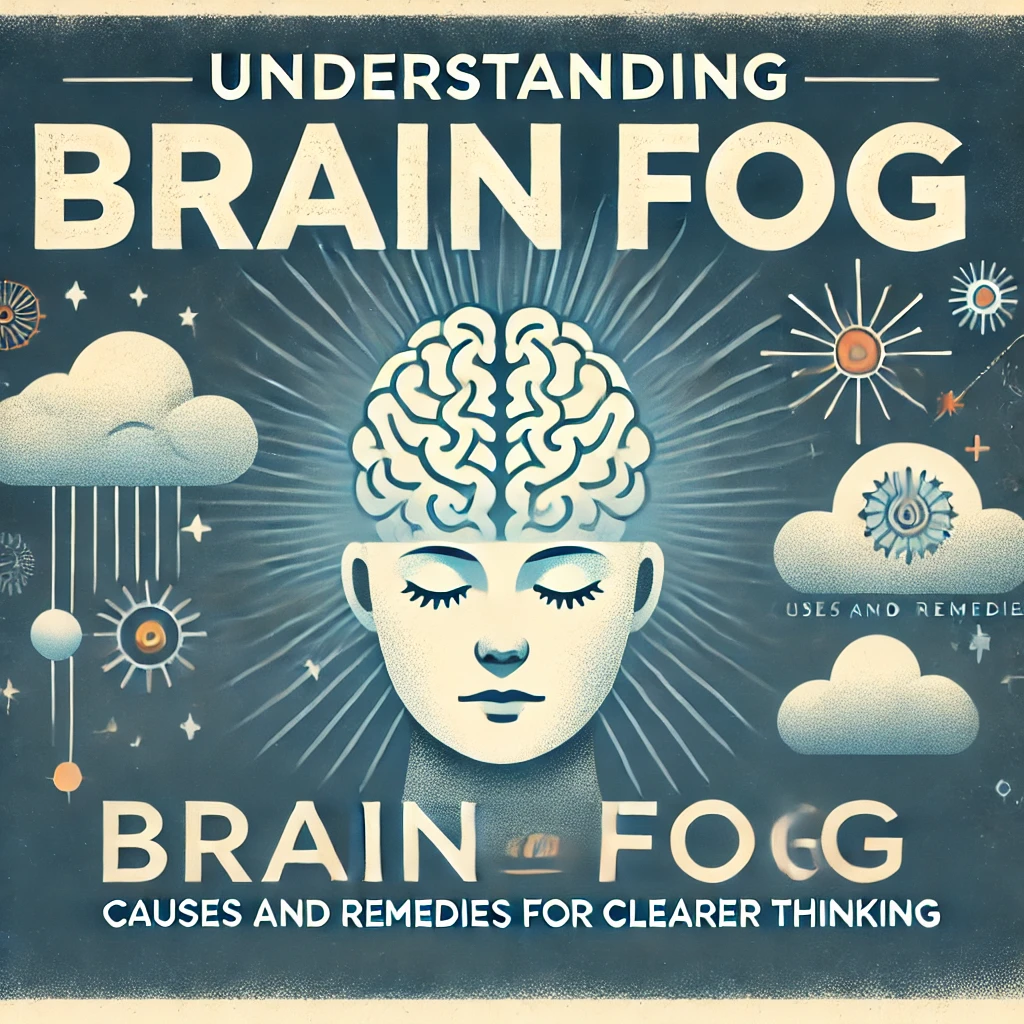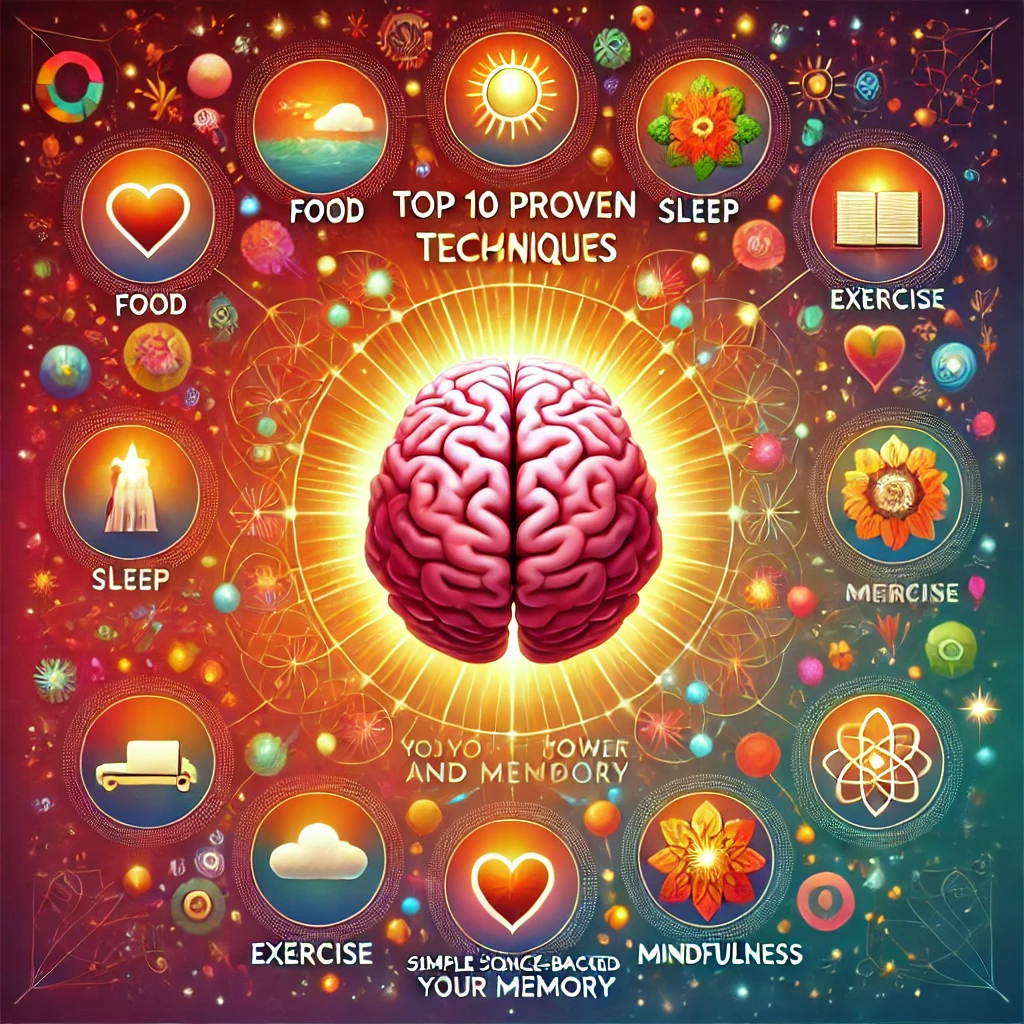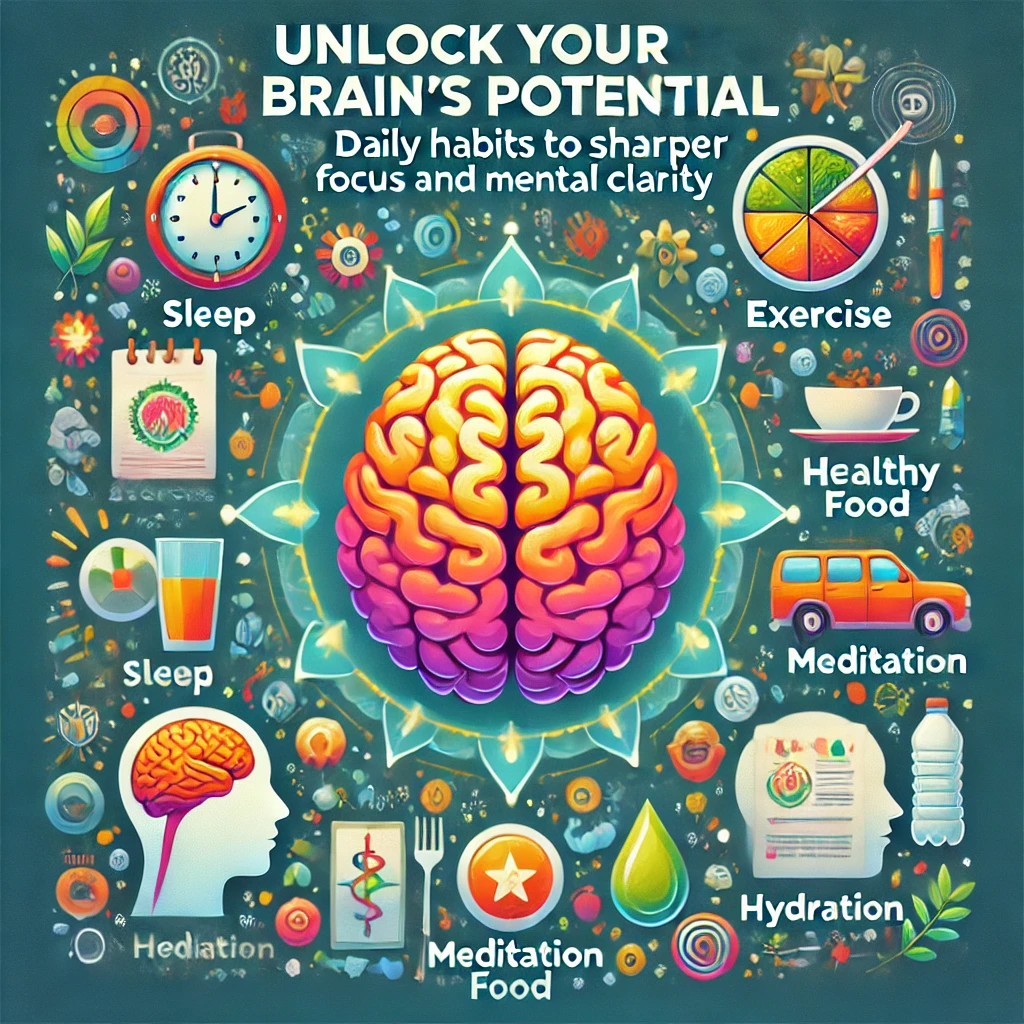Introduction
Have you ever experienced a day when your mind feels sluggish, and no amount of coffee can seem to bring you back to clarity? You’re not alone. This frustrating sensation, often referred to as “brain fog,” is more common than you might think. Brain fog can leave you feeling mentally fatigued, forgetful, and unfocused, making it hard to tackle even simple tasks. But what causes this hazy mental state, and more importantly, how can we overcome it?
In this guide, we’ll dive into the common causes of brain fog, explore practical remedies for clearer thinking, and share lifestyle tips to prevent it from creeping back. Whether you’re looking for natural remedies for brain fog or simple ways to improve brain clarity, you’ll find useful insights to help regain mental sharpness.
1. What is Brain Fog? Recognizing the Symptoms
Brain fog is not a medical condition but rather a symptom that can stem from various underlying factors. People often describe brain fog as a mental haze, characterized by forgetfulness, trouble concentrating, and a general sense of confusion or mental exhaustion. These symptoms can vary in intensity, ranging from mild distractions to severe memory lapses.
Common symptoms of brain fog:
- Difficulty focusing on tasks
- Forgetfulness or trouble recalling information
- Mental fatigue
- Difficulty making decisions
- Feeling “zoned out” or disconnected
Relatable anecdote:
I remember once preparing for a big presentation, only to feel like my thoughts were scattered and hard to organize. It was as if my brain was in a fog, making it tough to put coherent sentences together. It wasn’t until I realized how much my sleep and diet were affecting me that I began taking steps to improve my mental clarity.
Understanding the causes of mental fog is the first step toward finding solutions, so let’s explore some of the most common contributors to this frustrating phenomenon.
2. Causes of Mental Fog: Common Factors that Contribute to Brain Fog
There are numerous brain fog causes and remedies, but finding the exact cause is key to effective treatment. Brain fog can stem from lifestyle habits, health conditions, or environmental factors, and each of these influences our mental clarity in different ways.
a) Lack of Sleep
One of the most common causes of mental fog is poor sleep. During sleep, the brain processes memories, clears toxins, and repairs itself. When we don’t get enough quality rest, these functions are impaired, leading to cognitive fatigue and difficulty concentrating.
Solution:
Aim for 7-9 hours of quality sleep each night. Establishing a regular sleep schedule, limiting screen time before bed, and creating a relaxing bedtime routine can all improve sleep quality and help prevent brain fog.
b) Poor Diet and Nutrient Deficiencies
Our brains need specific nutrients to function optimally, and a lack of these nutrients can lead to brain fog. Diets high in processed foods, sugars, and unhealthy fats can contribute to inflammation, which impacts brain clarity and focus.
Relatable anecdote:
I used to rely on sugary snacks to keep me going throughout the day, only to find myself crashing an hour later. After switching to more whole foods and incorporating brain-friendly nutrients, like omega-3s and antioxidants, I noticed a significant improvement in my focus and energy levels.
Solution:
Incorporate more whole foods into your diet, focusing on brain-boosting nutrients like leafy greens, fatty fish, nuts, and berries. Staying hydrated is also essential for brain function, so aim to drink plenty of water throughout the day.
c) Chronic Stress and Anxiety
Stress is a natural part of life, but chronic stress can wreak havoc on mental clarity. High levels of cortisol, the stress hormone, interfere with memory and cognitive function, leaving us feeling mentally drained.
Solution:
Practice stress management techniques like mindfulness, deep breathing, and regular physical activity to help lower cortisol levels. Even a short daily meditation can have a powerful impact on mental clarity.
d) Lack of Physical Activity
Exercise is often associated with physical health, but it plays a huge role in brain health too. Physical activity increases blood flow to the brain, helping deliver oxygen and essential nutrients needed for mental clarity and focus.
Example:
A friend of mine was dealing with constant brain fog, and his doctor recommended adding light exercise to his routine. He started taking daily walks, and soon enough, he felt more focused and clear-headed.
Solution:
Aim for at least 30 minutes of moderate exercise most days of the week. Activities like walking, cycling, or yoga can improve mental clarity and overall well-being.
e) Hormonal Imbalances
Hormonal fluctuations, especially in women, can contribute to brain fog. Changes in estrogen levels, for example, can impact mood and cognition. This is often seen in perimenopausal or menopausal women, though hormonal imbalances can affect both men and women.
Solution:
If you suspect hormones might be impacting your mental clarity, speak with a healthcare provider. They can run tests to determine if imbalances are present and suggest treatments or lifestyle adjustments to help manage symptoms.
3. Natural Remedies for Brain Fog: Simple Tips for Clearer Thinking
Once we understand the potential causes, it’s easier to focus on how to get rid of brain fog naturally. Here are some practical remedies for brain fog clarity that you can easily incorporate into your daily routine.
a) Practice Mindfulness and Meditation
Mindfulness can help reduce stress, increase focus, and clear mental fog. By training the brain to stay in the present, mindfulness can improve cognitive function and help you feel more centered.
How to practice mindfulness:
Start with just five minutes of quiet breathing each morning, gradually increasing as you get more comfortable. Apps like Headspace or Calm can provide guided meditations if you’re new to mindfulness.
b) Use Essential Oils for Mental Clarity
Certain essential oils, like rosemary and peppermint, are known for their brain-boosting properties. Research shows that inhaling these oils may improve focus, alertness, and cognitive performance.
How to use essential oils:
Diffuse rosemary or peppermint oil in your workspace or apply a small amount to your wrists or temples when you need a mental boost. Just remember to dilute essential oils if you’re applying them to your skin.
c) Limit Sugar and Processed Foods
Processed foods and sugars can cause energy spikes and crashes, leaving your brain foggy and fatigued. Instead, opt for whole foods that provide steady energy and support brain health.
Simple swaps:
Replace sugary snacks with nutrient-dense options like nuts, seeds, or fresh fruit. Instead of refined carbs, choose whole grains like quinoa, oats, and brown rice to keep your blood sugar stable.
d) Stay Socially Connected
Social interactions are a natural brain booster, helping to keep our minds engaged and sharp. Spending time with loved ones can lift your mood, reduce stress, and stimulate your mind.
How to stay connected:
Schedule regular catch-ups with friends or family, even if it’s just a phone call or coffee chat. Maintaining social connections is a powerful way to reduce mental fog and improve overall cognitive function.
e) Challenge Your Brain
Keeping your mind active with cognitive challenges can help clear mental fog. Activities like reading, puzzles, learning a new language, or even engaging in creative hobbies can stimulate brain function and improve focus.
Example:
I started doing crossword puzzles on weekends as a fun way to unwind, and I quickly realized it was also helping me think more clearly during the week. Challenging your brain is like exercise—it keeps things running smoothly.
Suggestions for brain challenges:
- Try a new hobby, like playing an instrument or painting.
- Do daily puzzles, like Sudoku or crosswords, to keep your mind sharp.
- Engage in activities that push you out of your comfort zone to stimulate cognitive growth.
4. Lifestyle Tips for Brain Fog Relief and Prevention
Preventing brain fog often comes down to making small adjustments in our daily habits. Here are some lifestyle tips to reduce brain fog naturally and prevent it from returning.
a) Maintain a Balanced Diet
A balanced diet rich in vitamins, minerals, and healthy fats can support brain health. Omega-3 fatty acids, found in fish, flaxseed, and walnuts, are especially beneficial for mental clarity and focus.
Brain-boosting foods to include:
- Fatty fish like salmon and sardines
- Leafy greens such as spinach and kale
- Berries (blueberries, strawberries) for their antioxidant content
- Nuts and seeds for essential fatty acids
b) Prioritize Quality Sleep
We all have busy lives, but sleep should be a priority. Good sleep hygiene, including going to bed and waking up at the same time each day, can make a huge difference in brain performance and clarity.
Sleep tips for clearer thinking:
- Avoid caffeine in the afternoon or evening.
- Limit screen exposure at least an hour before bed.
- Create a calming bedtime routine with activities like reading or listening to soothing music.
c) Practice Time Management to Reduce Overwhelm
Feeling overwhelmed can contribute to mental fog, so practicing good time management can be a game-changer. Breaking tasks into smaller, manageable steps can help you stay focused and clear-headed.
How to manage your time effectively:
- Make a to-do list each morning and prioritize your tasks.
- Set aside dedicated time for focused work, avoiding distractions.
- Take short breaks to recharge between tasks and prevent burnout.
d) Incorporate Physical Activity into Your Day
Regular exercise is one of the most effective natural remedies for brain fog. Even moderate activity can reduce stress, improve mood, and enhance cognitive performance.
Easy ways to add movement:
- Take a short walk during lunch breaks.
- Stretch periodically if you’re working at a desk.
- Try incorporating 10-15 minutes of physical activity each morning to jumpstart your day.
Conclusion
Brain fog can be frustrating, but understanding the causes and finding practical remedies can help you regain mental clarity and focus. By making small changes to your lifestyle, like improving sleep, managing stress, and incorporating brain-boosting foods, you can reduce brain fog naturally and keep your mind sharp.
If you’ve been struggling with brain fog, remember that you’re not alone, and these adjustments can make a big difference. Try implementing one or two changes to start and gradually build on your progress. Soon, you’ll notice clearer thinking and a renewed sense of mental energy.
FAQ Section
1. What causes brain fog?
Brain fog can result from factors like lack of sleep, poor diet, chronic stress, hormonal imbalances, and a sedentary lifestyle.
2. How can I get rid of brain fog naturally?
Natural remedies include improving sleep, reducing sugar intake, staying hydrated, managing stress, and incorporating physical activity.
3. Does diet play a role in brain fog?
Yes, diets high in processed foods and sugar can worsen brain fog, while nutrient-rich foods like fish, leafy greens, and berries can improve mental clarity.
4. Can essential oils help with brain fog?
Certain essential oils, like rosemary and peppermint, are known to promote focus and mental clarity. You can use them in a diffuser or apply them to your wrists.
5. How does exercise impact brain fog?
Exercise increases blood flow to the brain, reducing stress and boosting clarity and focus. Even short, regular workouts can improve mental clarity.
6. Is brain fog a symptom of stress?
Yes, chronic stress elevates cortisol levels, which can impair memory and lead to mental fog. Stress management techniques can help alleviate these symptoms.
7. Can mindfulness help clear brain fog?
Mindfulness and meditation reduce stress, improve focus, and promote mental clarity, making them effective remedies for brain fog.
8. What are some good brain-boosting foods?
Foods rich in omega-3s, antioxidants, and vitamins—such as fatty fish, nuts, seeds, leafy greens, and berries—are excellent for brain health.
9. How long does it take to notice improvements in brain fog?
Results vary, but consistent lifestyle changes, like improved sleep and diet, often lead to noticeable improvements in a few weeks.



